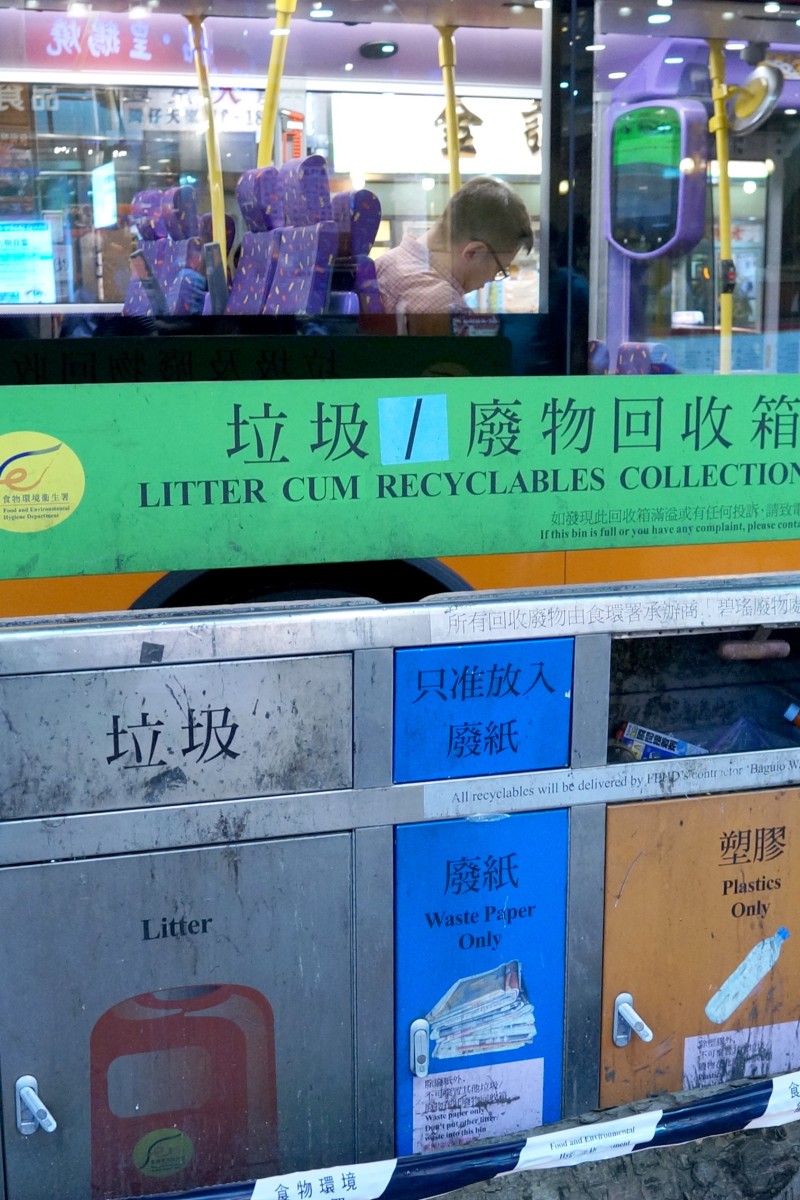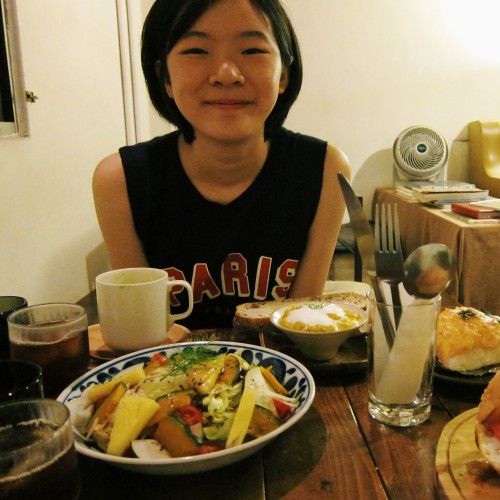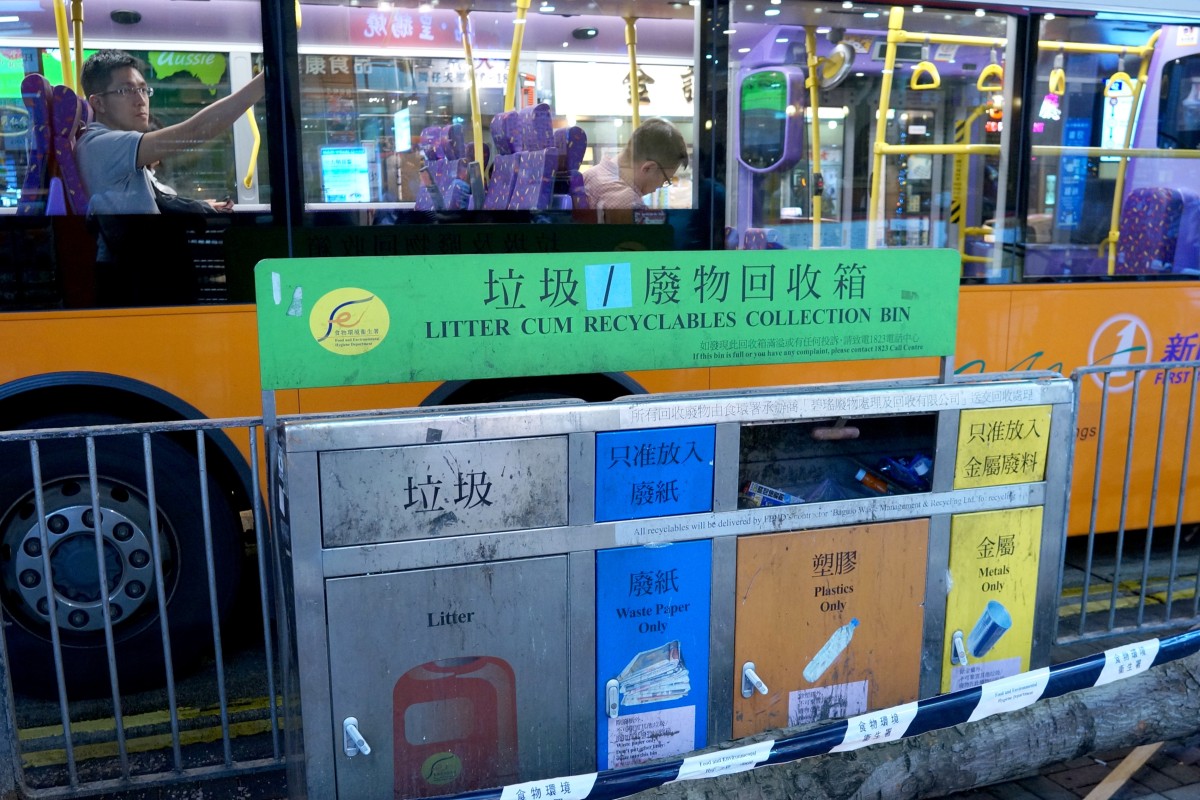
How to recycle in Hong Kong, from paper, glass and plastic to clothing, furniture and other reusable items
What can you do with recyclable things that can’t be placed into the tricolour recycling bins?

 These three-colour bins are all over Hong Kong, but how should you recycle things not among the 'big three'.
These three-colour bins are all over Hong Kong, but how should you recycle things not among the 'big three'.Recycling is a simple action that can make a huge difference. Having said that, it’s something that few of us ever get round to doing – all the more so in Hong Kong. While it’s true that our city is heading in the right direction – computers and other electrical appliances can now be recycled, for example – it still has some way to go.
The success of the city’s Environmental Protection Department (EPD), which promotes environmental protection, depends on public participation. It is important that we all take action, especially as our landfills become full and we run out of space. Making use of Hong Kong’s recycling bins for waste paper, plastics, and metals is a good start, but there are many items that don’t fit these categories that can still be given a second life. Here are other places you can take your recyclables.
Glass
The EPD have recently set up glass collection points across the city, from Central to Yuen Long. These recycling bins are grey with green lids, and they can be found next to your regular tricolour recycling bins.
Food
Instead of throwing your unwanted food into the bin, donate it to Bo Charity Foundation. This organisation accepts frozen or chilled foods, bakery goods, and even cooked items. It uses the donated food to prepare 9,000 meals a day at its central kitchen, and is given out to Hong Kong’s underserved communities.
Alternatively, start your own compost bin; you can even put in egg shells, vegetable peelings, and tea bags. Bonus: use it to grow flowers!
Clothes
Many high-street clothing chains provide collection boxes in their stores for you to donate your unwanted clothes. H&M sends most of the donations it receives to be used as second-hand clothing; the rest is given to The Hong Kong Research Institute of Textiles and Apparel, to aid research on how to improve methods of recycling.
Zara also takes in unwanted clothes, which are then donated, recycled, or turned into new fabrics via charities like Hong Kong Red Cross, Caritas, and Redress. Marks and Spencer has “Shwop” boxes where you can drop off old clothes. Your items will be resold, reused or recycled by global charity Oxfam to help reduce poverty around the world.
Donating Hair
The Hong Kong Cancer Fund accepts hair donations that are at least 20-25 cm in length; you can drop them off at any of its CancerLink centres. The organisation also accepts coloured hair – preferably unpermed. It sends donated locks to wig centres, where it is turned into wigs for cancer patients.
Plastic water bottles
Water company Watsons Water has launched a new scheme to encourage people to recycle more. Download the Drops of Fun app and look out for one of the Green Point Smart Water Bottle Reverse Vending Machines stationed throughout the city.
Whenever you recycle a Watsons plastic water bottle at the station, you gain reward points which can be used to earn prizes such as cash vouchers or discounts. You can find your nearest recycling point on the company’s website.
Furniture
Unwanted furniture takes up a lot of landfill space. Online platform 2nd Chance acts a bit like a rehoming service for your unwanted furniture and home accessories. Sell any old items to them, and they will resell them online, ensuring that nothing goes to waste.
Shoes and goggles
Escapade Sports Shops provide collection bins where you can donate any unwanted shoes and boots. All donations are given to the local community and developing countries.
In addition to shoes, Escapade Sports also collects goggles. Donations are sent to Splash, which is a swim school for foreign domestic workers, or communities in need of funding for swim lessons.
Cosmetics and skincare packaging
Aesop recycles all empty plastic and glass cosmetic packaging that is returned to its stores. Innisfree will recycle up to five empty Innisfree bottles per customer per month.
Caring about the environment yields its own rewards, too: Lush gives a free face mask to customers who return five of their empty pots and bottles. Kiehl’s will accept an unlimited amount of their own empty bottles and jars, plus one non-Kiehl’s bottle per donation, and will reward you with toners, face washes, or tote bags. MAC will give you one free lipstick in exchange for six used MAC containers.
Electronics and appliances
Apple allows you to trade in some of their older devices for Apple store gift cards. If your device is not eligible for credit, they will recycle it for free. For other electronics, head to any of Hong Kong’s Community Green Stations, which have collection points for old appliances, lamps, and rechargeable batteries.
Edited by Ginny Wong
